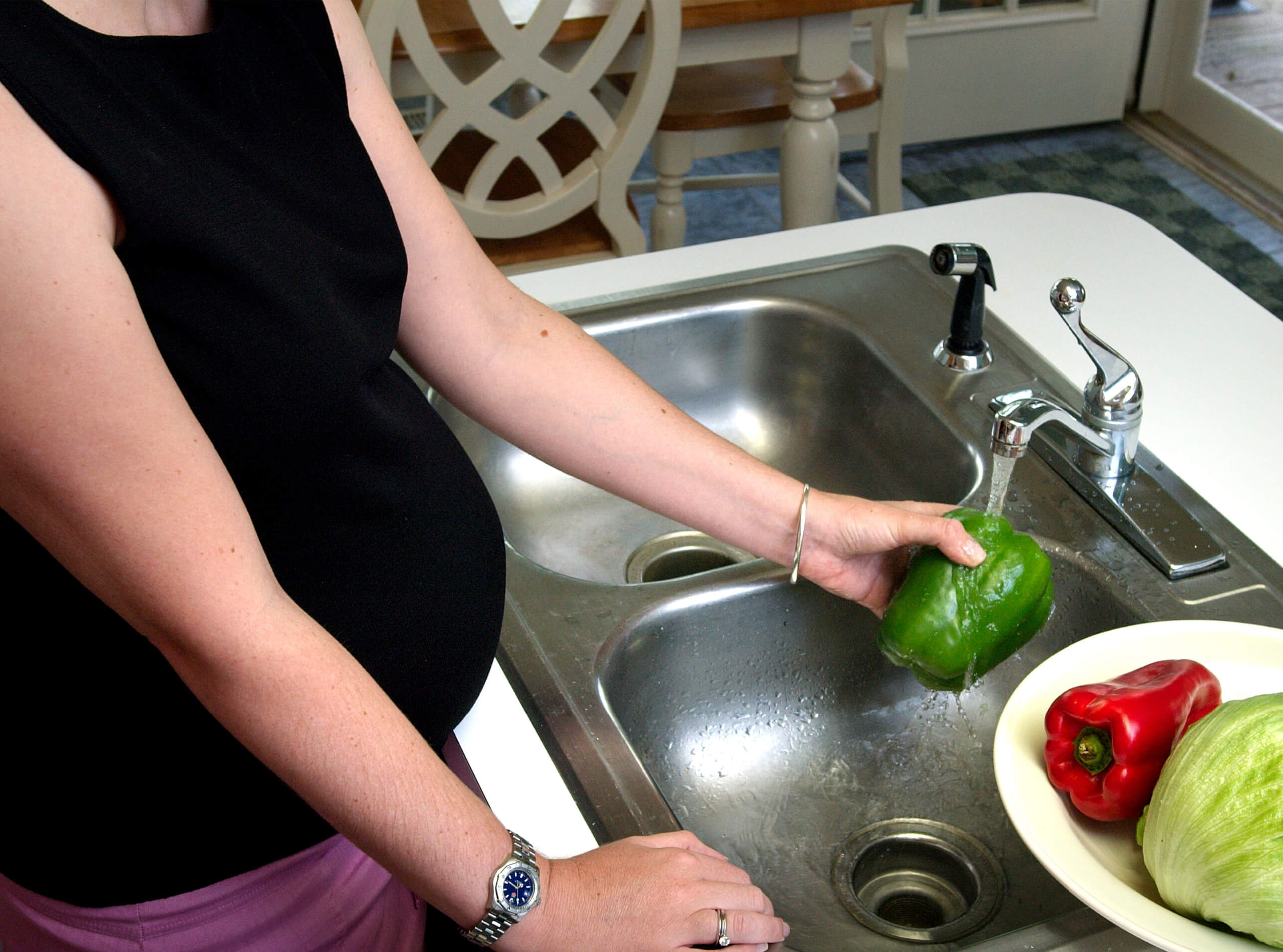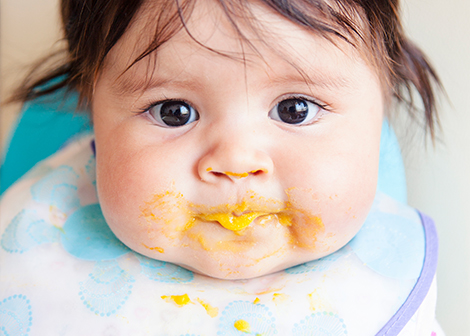Your diet can make a huge difference to how well you cope with the demands of pregnancy. A good diet can improve the health of your unborn baby, as well as your capacity to cope with your family, work and social life during and after pregnancy.
Weight gain during pregnancy
Pregnancy is a time when you are more likely to gain excess weight. While most women gain weight during pregnancy, some have trouble maintaining a healthy weight.
Gaining too much weight can have a big effect on your health, raising your risk of having high blood pressure, Type 2 diabetes, or other illnesses. It could also affect the health of your child.
Your energy needs
Your energy requirements (calories or kilojoules from food) do not increase during the first trimester of pregnancy. In the second and third trimester your energy needs will go up a little, depending on your body mass index (BMI).
For someone with a healthy BMI this would be an increase of approximately 200-300 Calories (or 830-840 kJ). For those with a higher BMI it would be closer to 100-150 Calories (400-630 kJ).
Eating a healthy diet can help you to…
Prevent and manage constipation
In pregnancy, the hormone progesterone can slow down your gut movements. The longer food stays in your gut the more nutrients can be absorbed but also the more fluid is absorbed. This leads to dehydrated stools that are difficult to pass. Here are some tips:
- Increase your fibre intake. Fibre increases the bulk and water content of stools, making them easier to pass. Foods high in fibre include fruit, vegetables, wholemeal and grain bread, brown rice, wholemeal pasta and cereals.
- Drink plenty of water throughout the day as fibre needs fluid to have a beneficial effect.
- Exercise regularly as it will help you to have regular bowel movements.
- If you are taking an iron supplement, try switching to a liquid form, but make sure you speak to your health professional for advice.
Ease morning sickness
Morning sickness, is nausea and vomiting that may occur at any time of the day during pregnancy. It is caused by hormonal changes and is most common during weeks 6 to 12 of pregnancy, although some women suffer for longer. Some tips include:
- Eat regular small meals every two to three hours, including some dry crackers before you get out of bed in the morning.
- Snack on protein foods between meals (e.g. nuts, reduced-fat hard cheese or yoghurt).
- Keep hydrated by drinking at least two litres of fluid a day. Water is best but other beverages do count. Limit those high in sugar such as juices, flavoured milks and soft drinks, unless they are all you can tolerate. Foods high in water like yoghurt, fruit and vegetables will also contribute to your fluid intake.
- Avoid a full stomach or empty stomach. Try to drink between meals rather than with them, avoid large portions, and fatty foods.
- Avoid foods with a strong taste or smell.
- If you are taking an iron supplement but they are causing you an upset stomach, try switching to a liquid form or children’s chewable iron tablets and folic acid. Make sure you speak to your health professional for advice.
Reduce heartburn
Heartburn, also known as acid reflux or indigestion, occurs when your stomach acids rise. This is caused by hormonal changes that relax the sphincter that closes your stomach off from your throat. In later pregnancy, your growing baby may press on your stomach and make heartburn worse. Some suggestions
- Eat small, regular meals or divide your meal into two smaller portions, keeping one for a snack later.
- Avoid fatty, fried foods or processed foods by choosing low fat dairy products, lean meats, fruits and vegetables.
- Use low fat cooking methods such as boiling, baking, or grilling instead of frying. Try an oil spray instead of liquid oil.
- Avoid caffeine in drinks like tea, coffee cola and chocolate. Choose decaf options instead. Caffeine also relaxes the sphincter between your throat and stomach, as do spicy foods. Keep upright for an hour after a meal to allow gravity to take effect. When lying down keep your head and shoulders propped up on a couple of pillows so gravity can help keep the stomach acid down.
Boost your immune system
Being pregnant affects your immune system and leaves you more vulnerable to infections such as colds and influenza. A well balanced diet including a variety of nutrients can help you to maintain your immune system.
- Try to eat the recommended amounts of dairy, protein, cereals, grains, fruit and vegetable food groups (see pregnancy healthy eating guide).
- Choose a wide variety of fruit and vegetables every day for the different vitamins and minerals needed to help fight sickness – think of putting a rainbow of colours on your plate.
Enhance your energy levels
Your energy comes from what you eat (protein, carbohydrate and fat), as well as from the breakdown of carbohydrate and fat stored in your body. Nutrients such as the B group vitamins and iron are needed to maximise your body’s production and use of energy. You will feel more energetic when you eat healthy foods.
The glycaemic index (GI) is a way of grading carbohydrates according to the extent to which they raise your blood sugar levels after eating. High GI foods provide quick energy but the slower energy release of low GI foods has more benefit for your general health.
- Eat regular meals and snacks to maintain your body’s store of ‘ready’ energy.
- Choose a variety of foods, such as fruits, vegetables and foods high in protein and carbohydrates with a low GI.
- Focus on eating twice as healthy rather than twice as much.
Prevent or delay diabetes
Pregnancy can affect how your body uses insulin, the hormone that controls the breakdown of carbohydrate and fat in your body. Some people are more likely to develop gestational diabetes during pregnancy because of family history, ethnicity and lifestyle.
Gestational diabetes, if it is not controlled, can also have a negative effect on your baby’s health.
If you are have gestational diabetes, you are at more risk of getting Type 2 diabetes after pregnancy.
- A healthy lifestyle can reduce the chances of getting gestational diabetes or at least delay it.
- Keeping physically active helps your insulin work better during pregnancy. Find out more about the recommended physical activity during pregnancy.
- Controlling your weight gain during pregnancy is very important to avoid diabetes.
Improve your mood
Research shows that there are strong links between the intake of folate, vitamin B12, calcium, iron, selenium, zinc, and omega 3 fats with improved mental health and mood.
Eating a variety of healthy foods each day is enough to make sure you are having enough vitamins and minerals that improve mood. Eating regular meals can help avoid mood swings.
Maintain your nutrient stores
During pregnancy, your body adjusts to ensure that your baby is top priority. Any nutrients will go from you to your baby to ensure their best development. If a nutrient is not readily available, your personal stores will be used for your baby.
- To ensure your nutrients are enough for you and your baby, regularly eat foods rich in iron, folate and calcium. Vitamin D from exposure to sunlight will help your body to absorb calcium.
- Eating a variety of healthy foods will help you and your baby have the required nutrients (except for folate and iodine, which you should take as supplements during pregnancy).
- If you take multivitamins, ensure that they are formulated specifically for pregnancy. Normal multivitamins can have high levels of Vitamin A that are harmful in pregnancy.
Want to know more?
The Raising Children Network – Pregnancy health and wellbeing
Frequently asked questions
Can I eat smoked salmon while pregnant?
Salmon is good for mothers-to-be and their growing babies. It’s high in omega-3 fatty acids. Studies show omega-3 fatty acids have a variety of benefits including for your baby’s brain development. However, take caution with raw fish.
Can I eat raw fish and sushi while pregnant?
It’s best to avoid any foods that may have harmful bacteria such as salmonella and E. Coli. This means raw or undercooked fish, shellfish, meat, poultry and eggs are off the menu. To be on the safe side, don’t have in unpasteurised milk and soft cheeses. Refrigerate leftovers and eat them within one day, otherwise throw them out.







